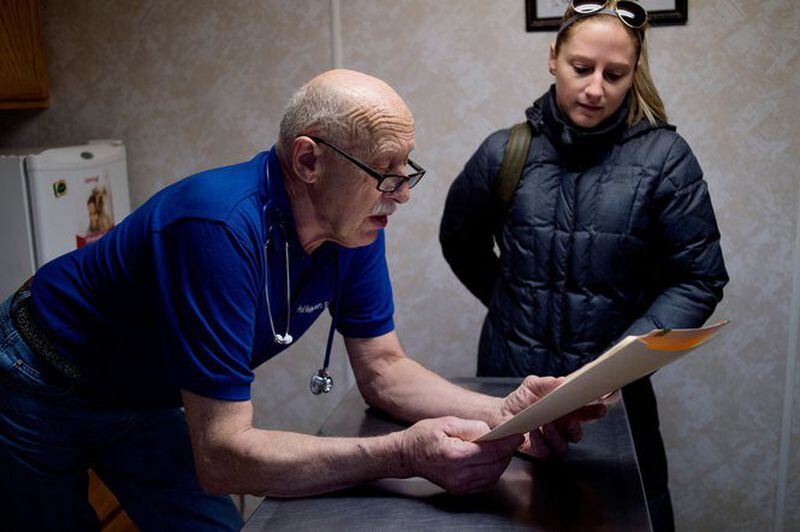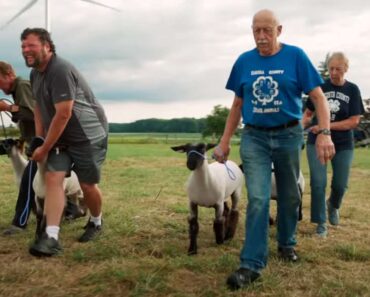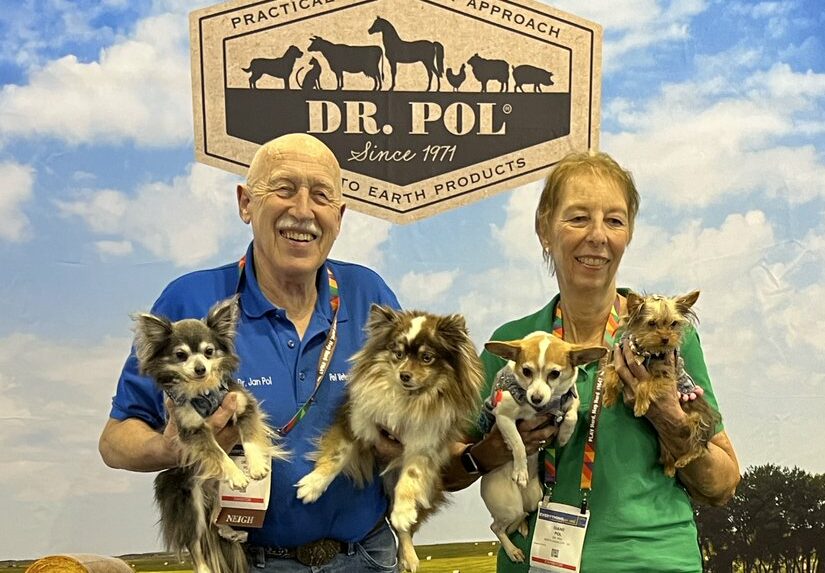Dr. Jan Pol, a Dutch-American veterinarian practicing in rural Michigan, has garnered widespread recognition as the star of the reality television series “The Incredible Dr. Pol”. His decades-long career and the public exposure from his show have positioned him as a prominent figure in the veterinary field, known for his practical, often characterized as “old-school,” approach to animal care. While enjoying considerable popularity with a broad audience, Dr. Pol has also faced a spectrum of controversies and criticisms throughout his career. This report aims to provide a detailed examination of these issues, encompassing concerns raised by the veterinary community, legal actions taken against him, and public opposition to certain practices, notably cat declawing. The analysis will delve into the specifics of these controversies, their implications, and the multifaceted perspectives surrounding Dr. Pol’s professional conduct.
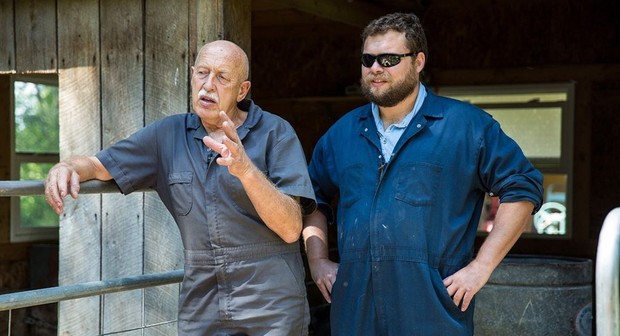
Criticism from the Veterinary Community
A significant aspect of the discourse surrounding Dr. Pol involves criticism from within the veterinary community. Many professionals in the field contend that his methods, as portrayed on his reality show, frequently deviate from contemporary standards of veterinary practice. These concerns span several critical areas of veterinary medicine. One primary point of contention is Dr. Pol’s apparent laxity regarding aseptic techniques. Instances depicted on the show have revealed a lack of consistent use of proper surgical attire, including gloves, masks, and gowns, during surgical procedures.For example, state regulators investigated complaints originating from episodes where Dr. Pol was observed not wearing gloves or appropriate attire during surgery. This issue has been serious enough to warrant disciplinary action from the Michigan Board of Veterinary Medicine.
Another area of concern involves the administration of anesthesia and pain relief. Fellow veterinarians have voiced apprehension over instances where procedures, particularly on large animals, appear to be performed with minimal or no anesthesia or pain medication. Critics point to examples such as neutering calves without apparent anesthesia and suturing without administering pain medication as evidence of practices falling short of current standards. Furthermore, questions have been raised about Dr. Pol’s adherence to established surgical protocols, including proper intubation and anesthesia monitoring during procedures. A specific case involving an ovariohysterectomy drew criticism from a viewer, highlighting concerns about the overall surgical technique employed.
A broader criticism leveled against Dr. Pol and his show is the perception that they glorify outdated veterinary practices.Many veterinarians worry that the show misleads the general public into believing that the depicted methods are representative of acceptable veterinary care, potentially undermining the profession’s efforts to advance medical standards. This concern is underscored by comments from veterinarians who describe Dr. Pol’s approach as “atrocious,” “appalling,” and “embarrassing,” fearing that it negatively portrays the profession’s commitment to high standards. These criticisms led to at least one petition, initiated by a fellow veterinarian, calling for the cancellation of Dr. Pol’s show due to concerns about the promotion of what they considered substandard medicine.

Image of Dr. Pol’s cast, Dr. Michele Sharkey, Diane Pol, Nicole Arcy, Dr. Emily Thomas, Dr. Brenda, and Dr. Pol, from left to right
Despite these criticisms, it is important to note that Dr. Pol has a significant base of support. Some argue that he provides essential and affordable veterinary care to a rural community where financial constraints are a reality for many animal owners. Many clients express satisfaction with his services, often citing his dedication to animals and his willingness to work within their financial means. This perspective suggests a potential divergence in what constitutes acceptable practice, possibly influenced by the unique challenges and economic realities of rural veterinary medicine.
Lawsuits and Disciplinary Actions Against Dr. Pol
Dr. Pol’s career has been marked by several legal and disciplinary actions, often stemming from complaints related to his veterinary practices as depicted on his television show. A significant incident occurred in April 2010, involving a case of stillborn puppies. The Michigan Board of Veterinary Medicine investigated allegations of misreading a canine ultrasound, providing inappropriate treatment, and failing to maintain adequate records. In 2012, the board placed Dr. Pol on probation and levied a fine. Dr. Pol maintained that these disciplinary actions were primarily due to minor record-keeping infractions.
Another prominent case involved an incident in May 2011, concerning the treatment of a Boston terrier named Mr. Pigglesworth, who had been struck by a car. A veterinarian from Kentucky, after viewing an episode of the show featuring this case, filed a complaint with the state of Michigan. The allegations included negligence and incompetence, specifically citing Dr. Pol’s failure to wear proper surgical attire and provide intravenous therapy, among other concerns. The Michigan Board of Veterinary Medicine initially disciplined Dr. Pol in response to this complaint. However, in 2016, the Michigan Court of Appeals overturned this disciplinary action, stating that the evidence presented did not establish a clear violation of the standard of care.

More recently, complaints were filed in relation to a 2013 ovariohysterectomy performed on a dog and the treatment of a wounded horse in 2015. These complaints again centered on allegations of negligence, including the failure to intubate the dog during surgery and the lack of proper surgical attire while treating the horse. In 2018, the Michigan Court of Appeals affirmed an order from the state Department of Licensing and Regulatory Affairs (LARA) placing Dr. Pol on probation for negligence in these instances.
These legal battles frequently involved scrutiny of Dr. Pol’s practices as they were broadcast on his reality television show. The fact that viewers, including fellow veterinarians, initiated complaints based on what they observed on air highlights the unique challenges and accountability that come with publicizing medical practices through reality television. In one instance, Dr. Pol accused a fellow veterinarian, who had started a petition against him, of libel, further illustrating the contentious environment surrounding his professional conduct.
The legal and disciplinary history of Dr. Pol reveals a pattern of conflict with regulatory bodies and segments of the veterinary community regarding his adherence to established standards of care. While some decisions were reversed upon appeal, others were upheld, indicating a lack of universal agreement on the appropriateness of his methods. The argument that Dr. Pol provides affordable care, particularly in a rural setting, often surfaces in his defense.
Controversy Regarding Cat Declawing
The practice of cat declawing has become a significant ethical debate within the veterinary profession, and Dr. Pol’s stance on this issue has drawn considerable criticism. Evidence suggests that Dr. Pol’s veterinary service continues to perform declawing procedures.
This is despite a growing consensus within the veterinary community and among animal welfare organizations against elective declawing. Opponents of declawing emphasize that it is not merely the removal of a cat’s nails but rather an amputation of the last bone in each toe.
This surgical procedure carries the potential for both short-term and long-term complications, including pain, nerve damage, and behavioral issues such as litter box aversion and increased aggression. Furthermore, declawing can negatively impact a cat’s natural behaviors, affecting their balance, ability to climb, and defense mechanisms. The ethical concerns surrounding declawing often center on the fact that it is typically performed for the convenience of the owner rather than for any medical benefit to the cat.
In response to Dr. Pol’s continued practice of declawing, numerous petitions and campaigns have been initiated to urge him to cease this practice. These efforts reflect the strong public sentiment against declawing and the desire to see veterinarians prioritize animal welfare.
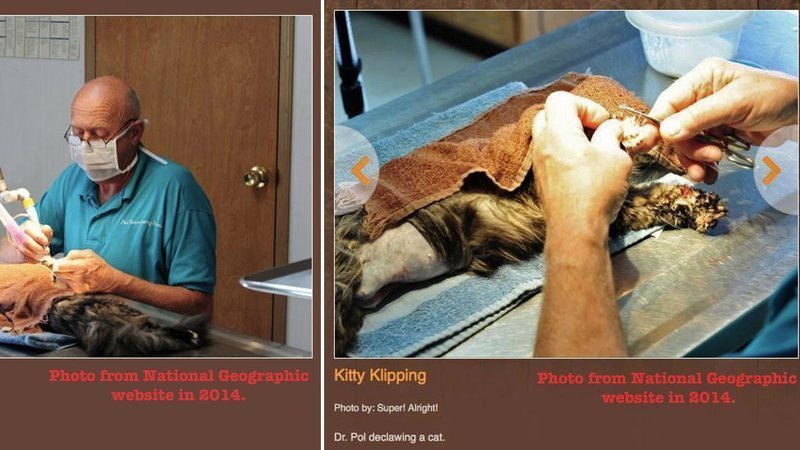
Dr. Eden Myers’ petition on change.org, which also called for the cancellation of his show, specifically cited concerns about substandard medicine, which implicitly includes the controversial practice of declawing. It is important to note that humane alternatives to declawing exist, such as providing scratching posts, regular nail trimming, and the use of nail caps. The ongoing practice of declawing by Dr. Pol, in the face of mounting opposition and readily available alternatives, contributes significantly to the controversies surrounding his career.
Other Notable Controversies
Beyond the criticisms of his veterinary practices and the declawing debate, Dr. Pol has been involved in other notable controversies. One such instance involves the tragic “Dr. Pol Vet Kills Husband” incident. While details remain somewhat unclear, reports indicate a domestic dispute between Dr. Pol and his husband that resulted in a fatal confrontation. This deeply personal tragedy has raised ethical considerations within the veterinary community regarding professional conduct and the impact of personal life on public perception. The incident led to legal implications for Dr. Pol and sparked a range of public reactions, highlighting the complexities of separating a public figure’s professional persona from their private life.
Another controversy arose in 2013 when Dr. Pol testified before the Michigan House of Representatives in favor of a bill that aimed to prohibit authorities from investigating reports of misconduct or allegations based on information obtained from viewing a reality program. This action was viewed by some as an attempt to limit scrutiny of his practices, particularly those showcased on his television show. Critics argued that such a bill could hinder accountability within the veterinary profession and undermine efforts to ensure consistent standards of care.
